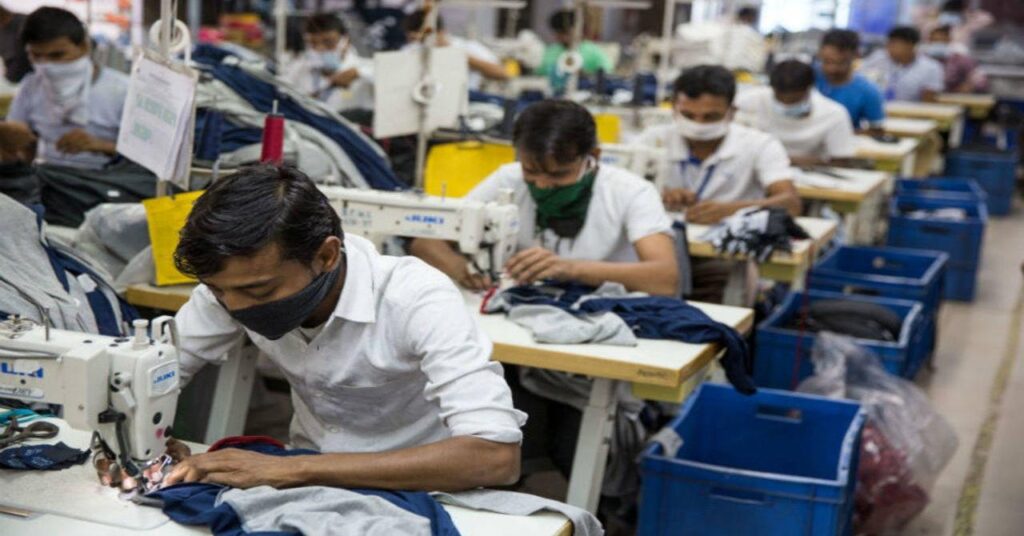Are you curious to know what is the formal sector? You have come to the right place as I am going to tell you everything about the formal sector in a very simple explanation. Without further discussion let’s begin to know what is the formal sector?
In the landscape of economic activities, the term “formal sector” is frequently used to describe a specific segment of the economy characterized by regulated and structured employment. This sector plays a crucial role in shaping a country’s economic development and is often contrasted with the informal sector. In this blog post, we will delve into the concept of the formal sector, exploring its defining characteristics, its significance in economic systems, and its impact on both employers and employees.
What Is The Formal Sector?
The formal sector refers to those parts of the economy that are recognized, regulated, and monitored by government authorities. It is characterized by a set of rules and regulations governing employment relationships, taxation, social security, and other aspects of labor and business practices. The formal sector encompasses a wide range of industries, including manufacturing, finance, information technology, healthcare, and more.
Key Characteristics:
- Legal Recognition: Entities operating in the formal sector are legally recognized and registered with relevant government authorities. This legal standing establishes the framework for compliance with regulations.
- Structured Employment: The formal sector is marked by structured employment arrangements, often involving written contracts specifying terms and conditions of employment, including wages, working hours, and benefits.
- Regulated Working Conditions: Working conditions in the formal sector are subject to regulatory standards, ensuring occupational health and safety measures, as well as adherence to labor laws.
- Taxation and Social Security Contributions: Businesses and employees in the formal sector are obligated to contribute to taxes and social security schemes. This financial contribution supports public services and social welfare programs.
- Access to Benefits: Employees in the formal sector typically have access to various employment benefits, such as health insurance, retirement plans, and paid leave.
Significance In Economic Systems:
The formal sector is a critical component of a country’s economy for several reasons:
- Revenue Generation: The formal sector contributes significantly to government revenue through taxation, which, in turn, supports public infrastructure, services, and development projects.
- Employment Stability: Jobs in the formal sector often provide more stability and security compared to the informal sector, offering employees a reliable income and access to benefits.
- Economic Growth: A thriving formal sector is associated with economic growth. It attracts investment, encourages innovation, and fosters productivity, all of which contribute to overall economic development.
- Social Welfare: The formal sector’s adherence to labor regulations and provision of benefits contributes to the well-being of employees, supporting a higher quality of life and social welfare.
Let’s find some more interesting topics like these here askcorran.
Challenges And Criticisms:
Despite its many benefits, the formal sector is not without challenges. Some common criticisms include issues related to bureaucracy, rigid labor markets, and potential exclusion of certain groups from formal employment opportunities. These challenges highlight the need for ongoing efforts to create a balance that maximizes the advantages of the formal sector while addressing its limitations.
Conclusion:
Understanding the formal sector is integral to grasping the dynamics of modern economies. It represents a structured and regulated space that not only drives economic growth but also plays a significant role in shaping the social fabric of a nation. As economies continue to evolve, the formal sector will likely undergo changes and adaptations to meet the demands of an ever-shifting global landscape.
FAQ
What Do You Mean By Formal Sector?
Meaning. The formal sector comprises businesses and economic activities that are under the supervision of the government. The informal sector consists of workers and enterprises that do not come under the regulation of the government.
What Is Formal Sector Class 12?
Formal SectorInformal SectorAll public and private sectorAll establishments whichestablishments whichemploy less than 10 workersemploy 10 or more hiredcomprise the informalworkers comprise the formalsector.
What Is Called Informal Sector?
The informal economy consists of activities that have market value but are not formally registered. The informal economy embraces professions as diverse as minibus drivers in Africa, the market stands in Latin America, and the hawkers found at traffic lights all over the world.
What Is Formal And Unorganised Sector?
The informal sector refers to unregulated economic activities, while the formal sector operates within regulatory frameworks. The organized sector consists of formal establishments with legal protections, while the unorganized sector comprises workers in informal employment arrangements with limited protections.
I Have Covered All The Following Queries And Topics In The Above Article
What Is The Formal Sector
What Is The Difference Between Formal And Informal Sector
What Is The Meaning Of Formal Sector
What Is The Role Of Rbi In Formal Sector
What Is Meant By The Formal Sector What Is The Status Of Women In This Sector
What Is The Share Of Formal Sector In Total Credit
What Is The Status Of Women In Formal Sector
What Is The Formal Sector Of The Economy
What Is The Formal Credit Sector Comprised Of
What Is The Difference Between Informal And Formal Sector
What Is The Difference Between Formal Sector And Informal Sector
What Is Meant By The Formal Sector
Formal Sector Examples
What Is The Formal Sector Vs Informal Sector
What Is The Formal Sector In Economics
What Is The Formal Sector Class 12
What Is The Formal Sector Class 10
What Is The Formal Sector And Informal Sector
What Is Informal Sector
10 Examples Of Formal Sector
What Is The Formal Sector
What do you mean by formal sector







